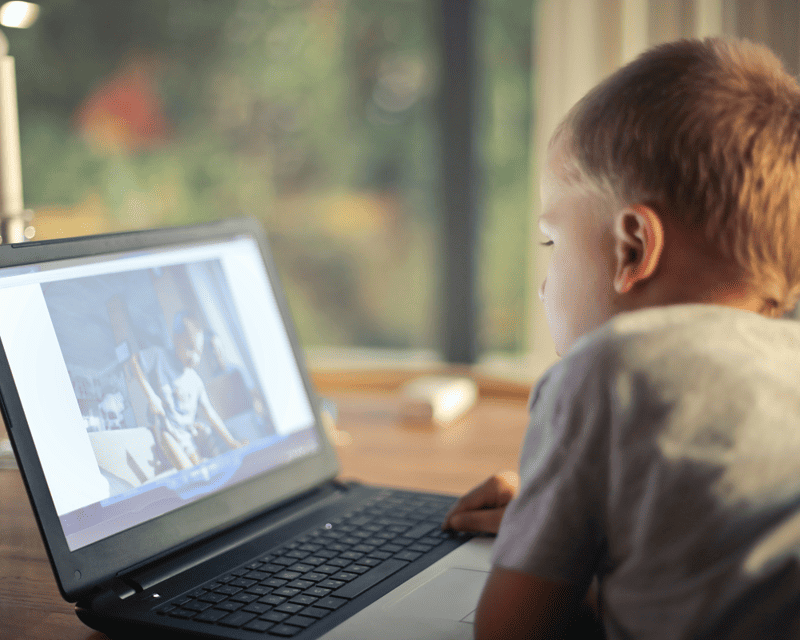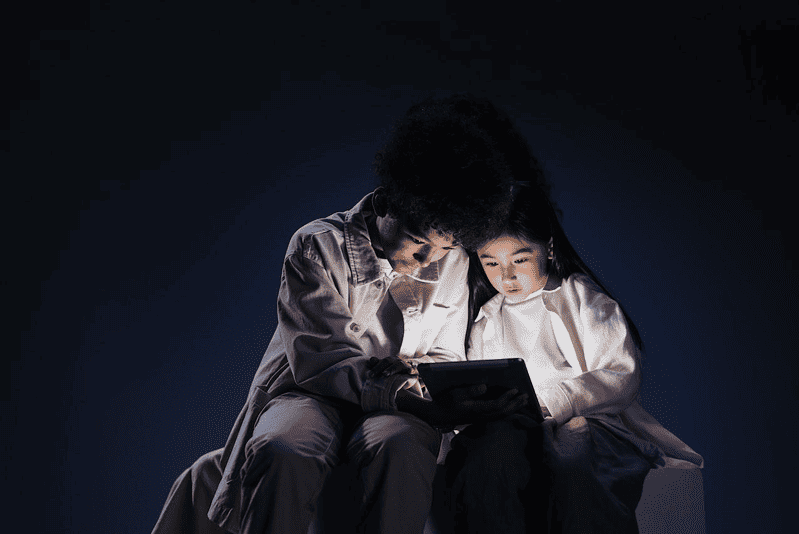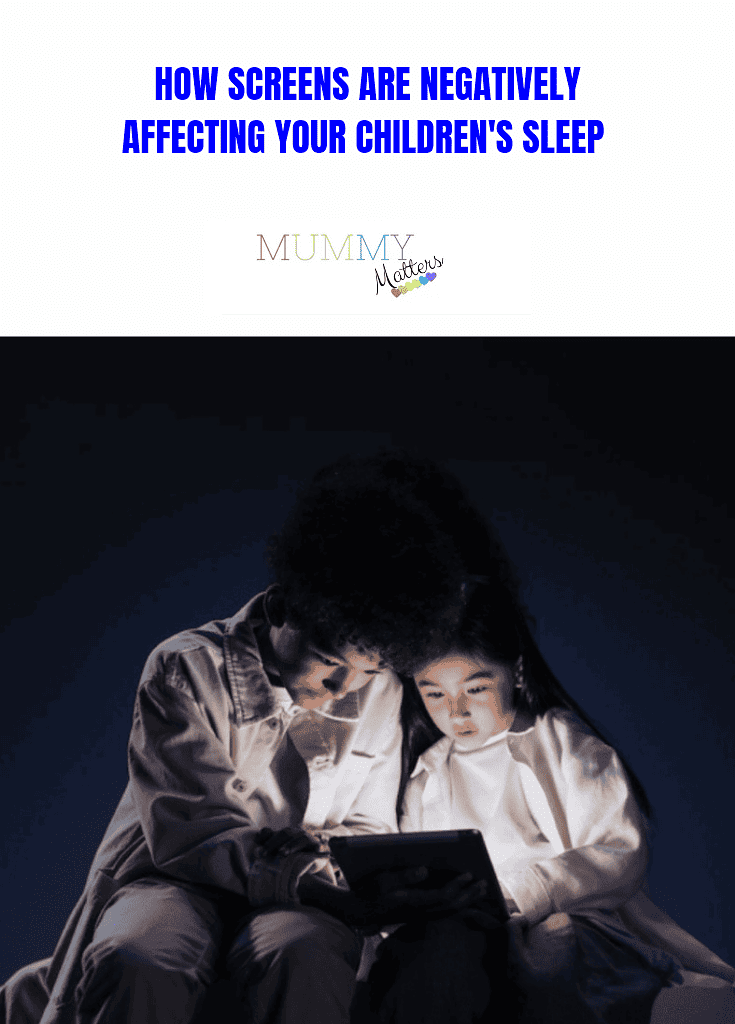Parents typically have a never-ending tightrope to balance. First, they must ensure their children make healthy connections with the world around them — not just through their devices. However, they also must make sure their kids don’t become entirely isolated from the outside world when navigating a world full of digital natives.
Yet, one area there seems to be at least some consensus is that too much screen use before bedtime can affect kids’ sleep. As a parent, it’s important to understand how and why this occurs. Your knowledge then allows you to make more informed decisions about the extent to which screens are present before bed.
Blue Light Disruption

One of the primary ways that screens can negatively affect your children’s sleep is due to the light they give off. Specifically, the blue light that is emitted from screens of computers, smartphones, and video game systems is of concern.
Experts recommend that children under the age of 6 years old should have less than 2 hours of screen time a day. This is because anything over this can be detrimental to their well-being. With regard to sleep quality, blue light plays a key role in regulating our circadian rhythms, which is the brain’s way of managing alertness and sleepiness. When children are exposed to blue light at times of day, they wouldn’t naturally receive it from the sun; this can disrupt natural sleep patterns.
The subjection to blue light can be problematic in both the short and long term. An immediate effect is if your child experiences difficulties dropping off to sleep at their usual time. This can result in them being too tired to function well the next day. If exposed to blue light consistently over a longer period, your child may experience a cumulative impact. Not having the correct amount of sleep regularly can influence your child’s moods, energy levels, and focus at school.
Overstimulation

You may also find that too much screen time results in your child becoming overstimulated. Certainly, this can depend on what your child happens to be watching as their bedtime approaches. It is certainly not unusual for children who consume dynamic audiovisual materials like movies and video games before bed to be more alert and active.
This overstimulation as a result of screen time is not simply an issue because your child may have more trouble getting off to sleep. You may also find that your child’s behaviour at bedtime is less positive. While a recent study found that the detrimental effect of screen time on children’s behaviour is relatively mild, it can nonetheless result in more “externalized” behaviours. Therefore, you may find your child’s overstimulated state before bedtime leads to irritability, defiance, and poor conduct.
It’s worth noting, though, that the presence of devices in themselves is not necessarily bad in the lead-up to bedtime. The key is in how you use them. Rather than allowing your child to watch shows or play games, you can take a purely auditory approach. Encourage them to listen to stories to wind down at the end of their day. Playing pink noise is also considered a good way to relax your child’s mind and help them drift toward good quality sleep.
Bad Sleep Habits

When parents look at the effect of screen time on sleep, they usually focus on the immediate impacts. This is understandable, as these are the elements that are most likely to be currently disruptive to your child and your wider family. However, it’s also vital to consider how actions now can have long-term effects on your child’s sleep patterns, specifically, how their relationship with screen time can derail good sleep habit-forming practices.
As with so many of their routines, the sooner your children can adopt positive bedtime habits, the easier it will likely be for them to maintain them in future. If their routines continue to feature screens prominently, it may be harder for them to cut loose from these in ways that support their rest.
Even though you and your child may experience certain bedtime battles now, your child will also experience new challenges as they get older. For instance, teens need more sleep than adults because their still-developing brains are navigating hormone fluctuations and a variety of external pressures. Prolonged exposure to screens during these years can boost serotonin and cortisol, further disrupting their sleep patterns. Without good sleep habits in place that minimize late screen use, they may experience greater fatigue that is difficult for them to overcome. So, acting now by encouraging habit-forming could have positive outcomes later.
Reduced Sleep Quality
When we consider the impact of screens on sleep, we’re typically concerned about the quantity of rest children get. However, it’s important to understand that how long your kids sleep is not the only influence on their wellness. It is vital that they also gain good quality sleep during that time.
A healthy sleep quality usually involves consistent sleeping through the night without disruptions. It also requires your children to achieve sleep cycles that include rotation through light sleep, deep sleep, and rapid eye movement (REM) sleep. This is a restorative form of sleep that helps your child stay healthy and supports both their emotional and cognitive development.
Unfortunately, too much screen time can negatively affect this. The impact of both blue light and overstimulation can result in the effects of insomnia for some children. In turn, this insomnia can reduce the number of times they achieve deep and REM sleep, thereby negatively impacting their overall quality of rest.
Conclusion
Screens have the potential to disrupt children’s sleep in a variety of ways. Blue light can impact circadian rhythms, while overstimulation may influence bedtime behaviour. The presence of screens later at night can also discourage good sleep habits and derail your child’s sleep quality. By mindfully reducing how much screen time your kids have, particularly in the evening, you can mitigate some of the potential immediate and long-term issues.

